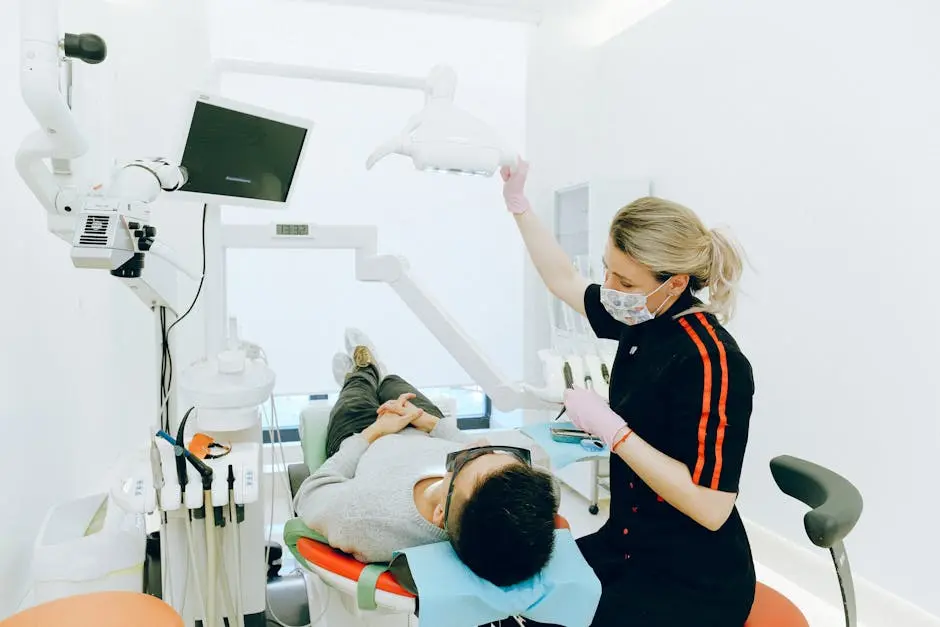Oral surgery is a specialized field of dentistry focused on diagnosing and treating complex issues affecting the mouth, jaws, and face. But when exactly is oral surgery necessary? In this guide, we’ll break down what oral surgery involves, common reasons for needing it, and how it can improve your oral health.
Definition of Oral Surgery
Oral surgery encompasses various procedures aimed at addressing diseases, injuries, and deformities in the oral and facial regions.
This branch of dentistry not only focuses on the extraction of teeth but also involves intricate procedures like jaw realignment and surgical treatment of oral cancer.
Oral surgeons work with advanced imaging techniques and surgical procedures to provide comprehensive care. Their expertise is essential in restoring function and improving aesthetics.
Common Types of Oral Surgery
Typical procedures include tooth extractions, jaw surgeries, and surgeries related to impacted teeth or wisdom teeth.
Tooth extractions are often necessary when a tooth is severely decayed or if it disrupts the alignment of other teeth. Wisdom teeth removal is another common procedure, as these molars often cause pain or crowding.
Jaw surgeries, which may include realignment to correct bite issues, can greatly enhance oral function and improve facial aesthetics. Such procedures often involve complex planning and imaging.
There are also reconstructive surgeries for patients who have suffered trauma, infections, or congenital issues, helping restore both function and form.
Signs You Might Need Oral Surgery
Look out for symptoms such as chronic pain, significant swelling, or difficulty when chewing—these can indicate a need for surgical intervention.
If you notice persistent bad breath despite good dental hygiene, it could point to underlying issues that require special attention. Ignoring these signals may lead to more significant problems.
In addition, if you have visible jaw misalignment or discomfort during conversations or eating, it’s a wise idea to seek advice from your dental professional.
Recognizing these early warning signs can help expedite necessary treatment, leading to better outcomes. Remember, prevention and proactive care are critical.
Consultation and Diagnosis Process
A thorough examination and imaging tests will help healthcare professionals assess whether oral surgery is the right choice for you.
During your consultation, your oral surgeon will ask about your medical history and current symptoms. This discussion is crucial for understanding your individual needs.
Imaging tests, such as X-rays or 3D scans, allow the surgeon to plan the procedure meticulously, identifying the exact location and extent of the issue.
Having a clear diagnosis ensures that the treatment is tailored to your situation, minimizing complications and ensuring effective results.
Preparing for Oral Surgery
Proper preparation, including discussing medications and dietary restrictions, is crucial to ensure a smooth surgery experience.
Before your procedure, your oral surgeon may provide specific instructions regarding what to eat or drink, as well as medications to avoid before surgery.
Additionally, having a support system in place for your recovery is essential. Arranging for someone to drive you home after your procedure ensures your safety.
Being mentally prepared and well-informed can significantly reduce anxiety and enhance your recovery experience, making the process feel more manageable.
Recovery After Oral Surgery
Post-operative care is vital for healing, which may involve pain management, follow-ups, and adhering to dietary guidelines.
Most patients can expect some swelling and discomfort after surgery, which can be managed with prescribed medications. It’s essential to follow your surgeon’s advice regarding pain management.
Following specific dietary regulations, such as consuming soft foods and staying hydrated, can also facilitate your recovery and lessen discomfort.
Regular follow-up appointments allow your surgeon to monitor your healing process, ensuring that any concerns are addressed promptly.
Final Thoughts on Oral Surgery
Understanding oral surgery can ease worries around dental procedures. If you experience any symptoms that might require surgery, consult with your dentist or an oral surgeon to determine the best course of action for your health.


